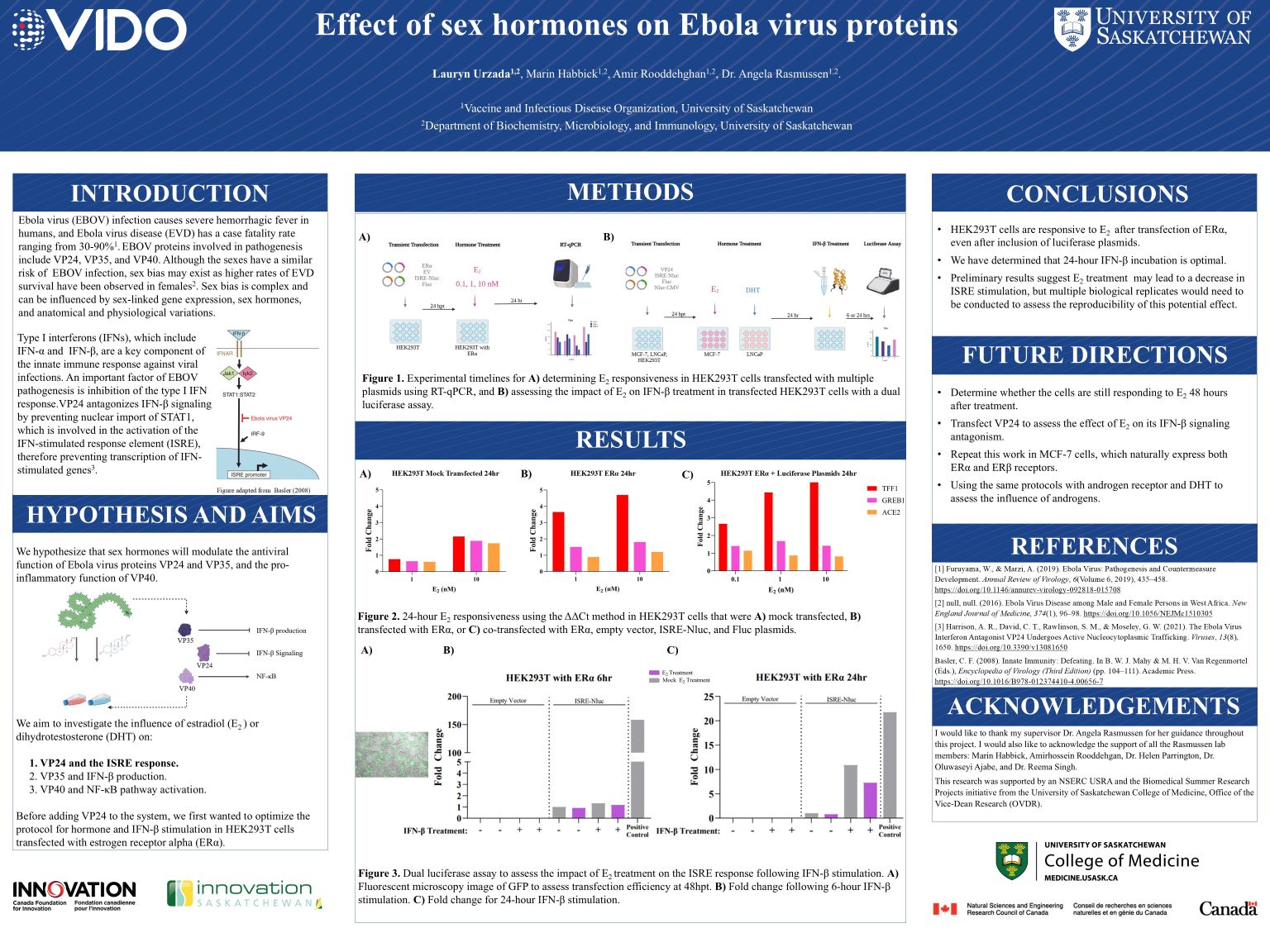
Effect of sex hormones on Ebola virus proteins
Lauryn Urzada
Ebola virus (EBOV) causes severe hemorrhagic fever in humans, and Ebola virus disease (EVD) has a case fatality rate ranging from 30-90%. Sex-biased outcomes have been observed for EVD, in which female patients are more likely to survive than males. Sex bias in immunity is complex and can be influenced by sex-linked gene expression, sex hormones, and anatomical and physiological variations. Additionally, EBOV proteins VP24, 35, and 40 are known to antagonize the immune response. Specifically, VP24 inhibits the activation of the Interferon Stimulated Response Elements (ISRE), preventing transcription of interferon stimulated genes. Our project first aims to develop an assay to investigate whether estrogens and androgens modulate the function of VP24. To accomplish this, we developed a hormone-responsive system in HEK293T cells by transfecting them with estrogen receptor alpha. We confirmed that these transfected cells responded to estradiol (E2) using RT-qPCR. Before adding VP24 to the system, we assessed the impact of E2 on interferon-beta signalling using a dual luciferase assay, which decreased ISRE stimulation. Next, we will investigate the effect of E2 signalling on VP24 ISRE antagonism using this established protocol and expand to investigate the same assay with androgens.
